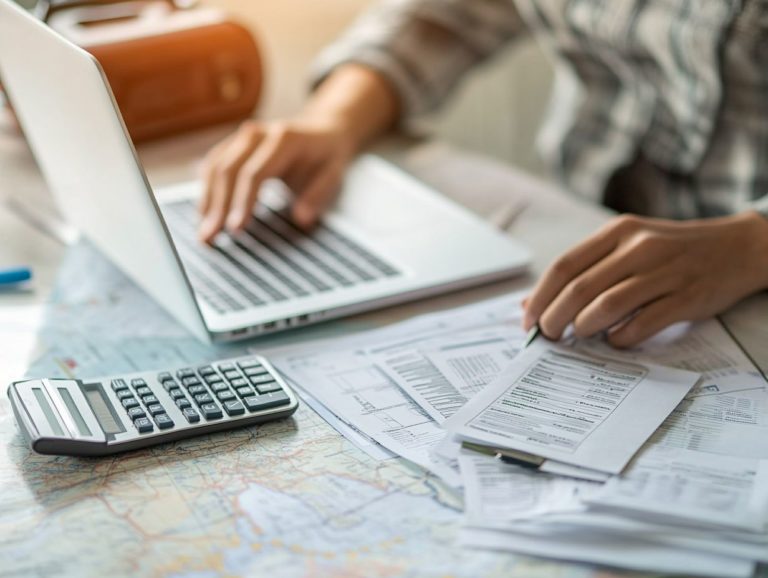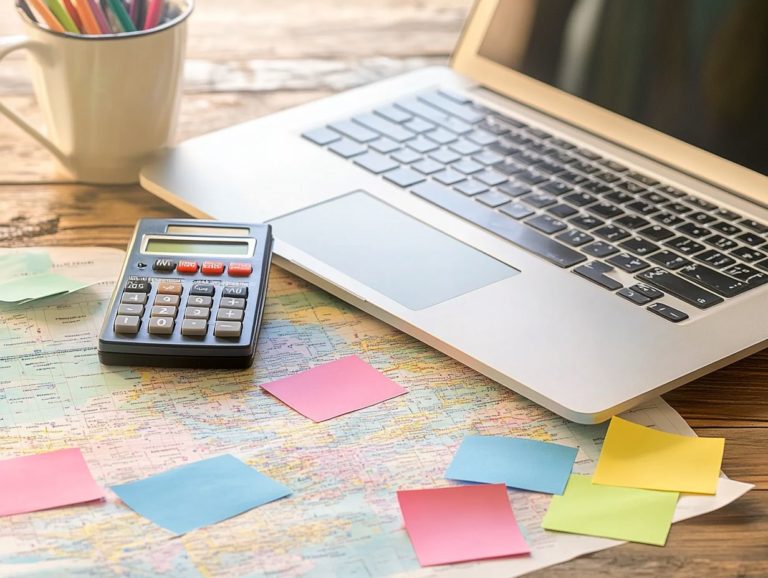What Should I Know About Travel Safety?
Traveling can be one of life s most exhilarating experiences. However, it’s essential that safety remains at the forefront of your journey.
Whether you’re navigating a bustling city or wandering through serene landscapes, understanding your destination is vital. This guide offers crucial insights into travel safety, covering everything from researching local laws to crafting an effective safety plan.
You’ll discover practical tips for safeguarding yourself during your travels. Equip yourself with the knowledge needed for a secure and enjoyable adventure!
Contents
Key Takeaways:
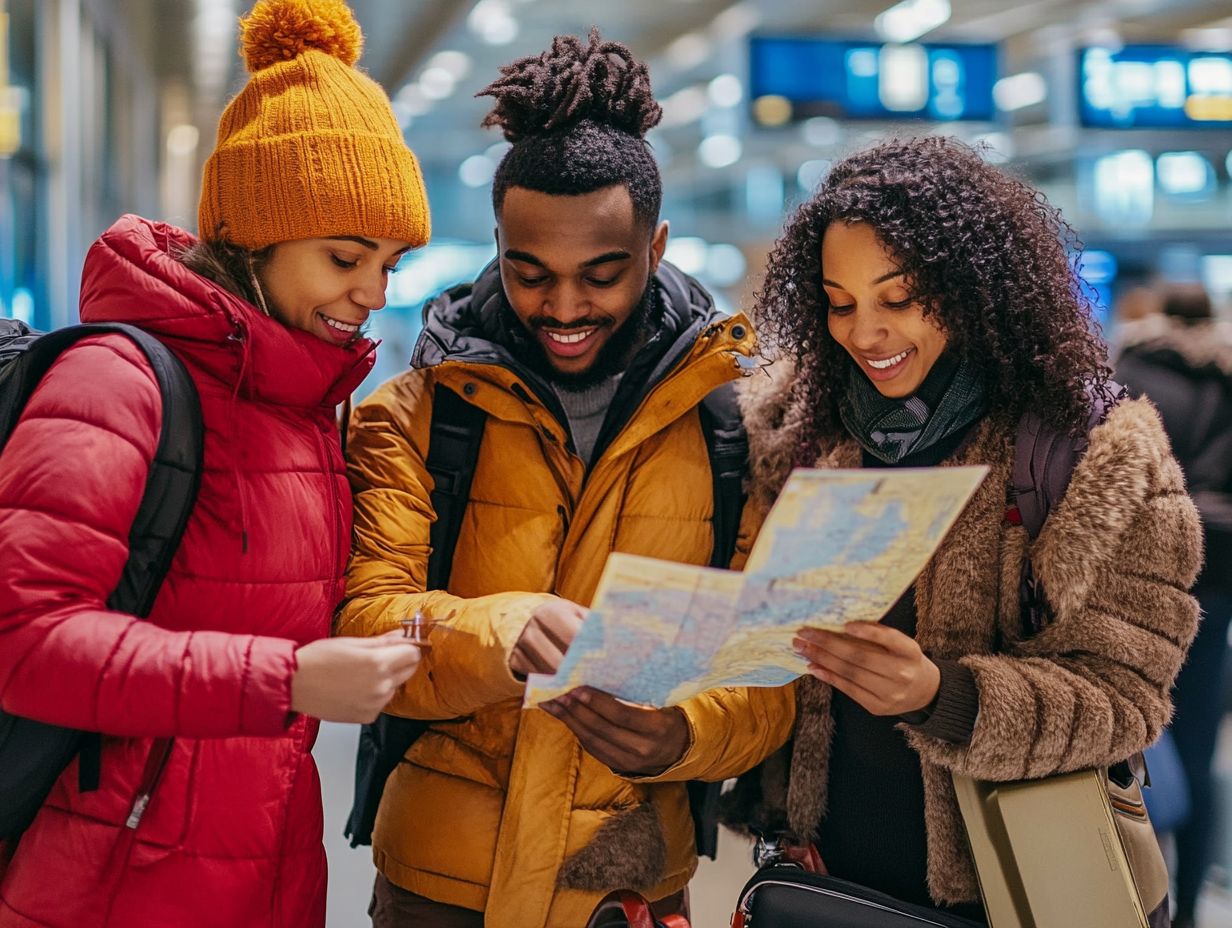
- Research your destination before your trip to understand local laws, customs, and potential safety risks.
- Pack essential safety items and create a safety plan before departing for your trip.
- Practice safe habits during your trip. Complete a post-trip safety checklist to ensure a safe journey after returning home.
Why is Travel Safety Important?
Travel safety is essential for your well-being. It helps shield you from health risks like travelers diarrhea or insect-borne illnesses such as malaria and Zika.
It also protects you from local scams and security threats. With global travel incidents on the rise, adopting travel precautions is more important than ever!
Knowing about emergency services and local laws is a must for every trip. Leveraging resources like the Smart Traveler Enrollment Program helps you stay updated on safety alerts in your destination country.
Researching Your Destination
Researching your destination is a crucial step in ensuring your travel safety. This knowledge equips you with vital information regarding local customs, health risks, and essential emergency contacts like the U.S. Embassy.
This information is your lifeline in unforeseen circumstances, providing you with the support you need when it matters most.
Understanding Local Laws and Customs
Understanding local laws and customs is vital for travelers. It helps you follow regional regulations and cultural practices, impacting your safety and experience significantly.
For instance, showing affection in public might be frowned upon or even illegal in some countries. In others, modest dress codes are strictly enforced in religious areas. Ignoring these norms could lead to fines or, in severe cases, legal troubles.
Being aware of cultural customs is equally essential. Missteps, like failing to greet locals appropriately, can offend community members and escalate tensions.
Carry essential documents like your passport and visas to avoid unnecessary complications with authorities. Awareness and respect for local traditions foster positive interactions and enrich your journey by deepening your understanding of the destination.
Assessing Safety and Security Risks
Assessing safety and security risks at your travel destination is an essential step. Evaluate potential threats, including local scams, health risks, and the availability of emergency services. This evaluation ensures a safe and enjoyable journey.
Start by conducting thorough online research. Dive into credible websites and forums for insights about the local environment. Consulting travel advisories from recognized authorities will give you a comprehensive understanding of the current situation in your destination country.
Engaging with locals for firsthand accounts can reveal nuances that might escape even the most informative travel guides. Being aware of prevalent scams, like fake taxis or unreliable tour guides, is crucial.
To mitigate these risks, consider using registered services and keeping emergency contact numbers close at hand. Knowing how to reach emergency services quickly can facilitate swift responses during unexpected events, further enhancing the safety of your travels.
Start your journey with confidence today!
Preparing for Your Trip
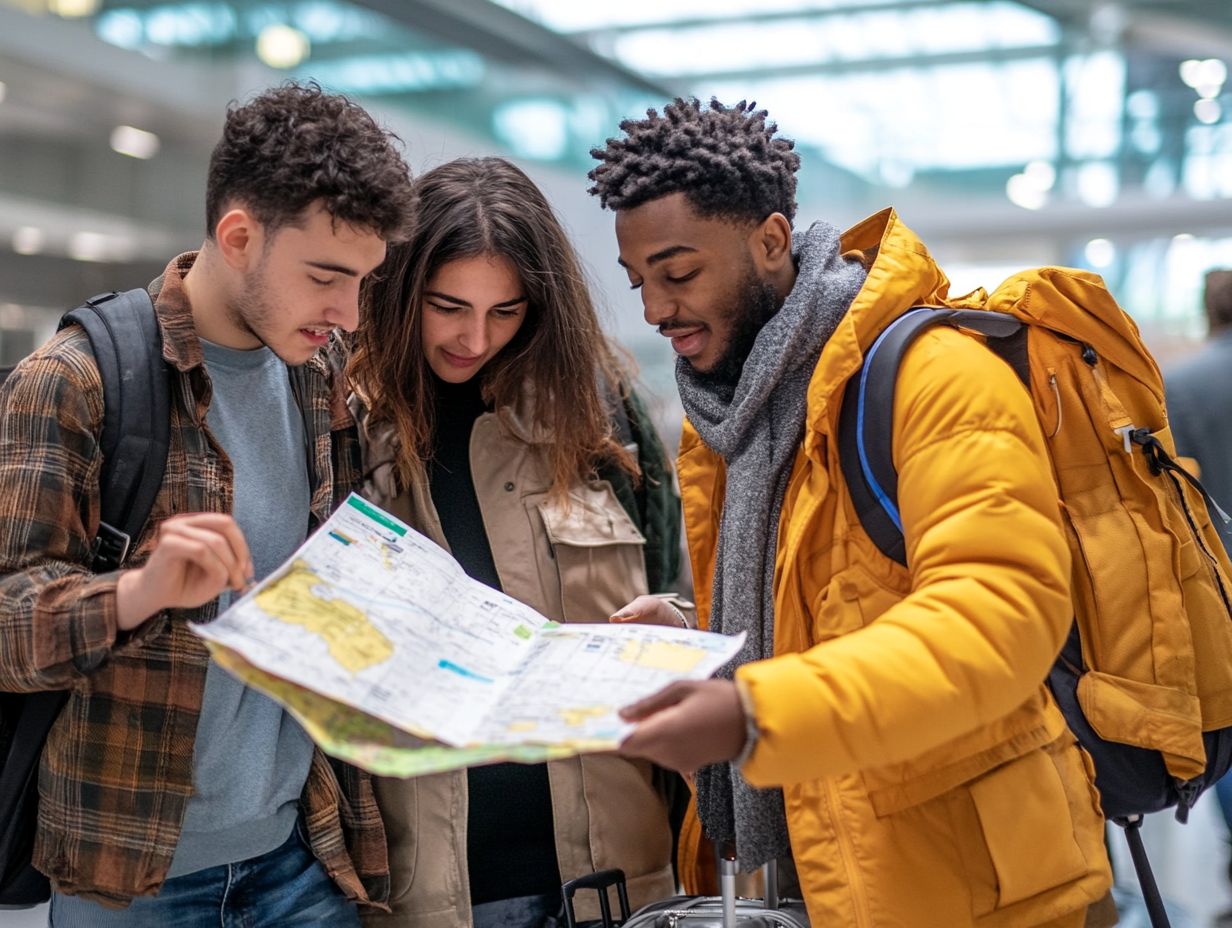
Preparing for your trip requires meticulous planning. This includes packing essential items such as a travel health kit, securing travel insurance, and organizing important documents.
Each step plays a crucial role in enhancing your travel safety and ensuring a sense of peace throughout your journey.
Packing Essentials for Safety
Packing essentials for safety is crucial for travel preparation. Ensure you have items like sunscreen, insect repellent, and a well-stocked travel health kit at the ready. These will significantly mitigate health risks and enhance your overall travel experience.
A comprehensive travel health kit should include:
- Antiseptic wipes
- Adhesive bandages
- Pain relievers
- Medications for common ailments, particularly those targeting bug bites and travelers diarrhea
You cannot underestimate the importance of applying sunscreen. Daily exposure to UV rays can lead to severe sunburn and long-term skin damage.
Prioritize proper handwashing techniques, especially before meals and after crowded places. This simple practice can prevent contamination from potentially harmful food or surfaces.
By taking these precautions, you can significantly reduce the likelihood of health issues that could disrupt your trip.
Creating a Safety Plan
Before you embark on your journey, create a safety plan. It s key to keeping your adventure worry-free! This plan should encompass emergency contacts, travel precautions, and clear steps for various scenarios.
- Start by compiling a list of key emergency contacts. This should include numbers for local authorities, like the police and fire departments, as well as the nearest hospitals. Don t forget to add the contact information for your country s embassy or consulate they can be a lifesaver during crises, such as lost passports or legal issues.
- Your comprehensive safety plan should also outline backup plans. Think about what you would do if you encounter health problems, face natural disasters, or experience theft.
- Prepare a checklist of all necessary documents. Consider storing copies both physically and digitally. This way, you re always a step ahead, no matter what the situation throws at you.
Staying Safe During Your Trip
Ensuring your safety during a trip demands a keen sense of vigilance and a commitment to sound travel practices. This includes selecting reliable transportation options, remaining alert to potential health risks, and safeguarding your security in public spaces, hotels, and while accessing public Wi-Fi.
Practicing Safe Habits
Practicing safe habits while traveling is crucial for minimizing health risks. Regular hand washing, applying sunscreen diligently, and using insect repellent are essential to guard against bug bites and mosquito-borne diseases.
By adhering to these hygiene practices, you can significantly decrease the chances of contracting infections. Washing your hands before meals and after visiting public restrooms creates a simple yet effective barrier against harmful germs.
Applying sunscreen not only protects your skin from harmful UV rays but also acts as a proactive defense against painful sunburn. Utilizing insect repellent is vital, especially in regions notorious for diseases like Lyme disease or dengue fever.
Incorporate these habits into your travel routine to fully enjoy your adventures while safeguarding your health.
Ready to make your trip safe and enjoyable? Start planning today!
Handling Emergency Situations
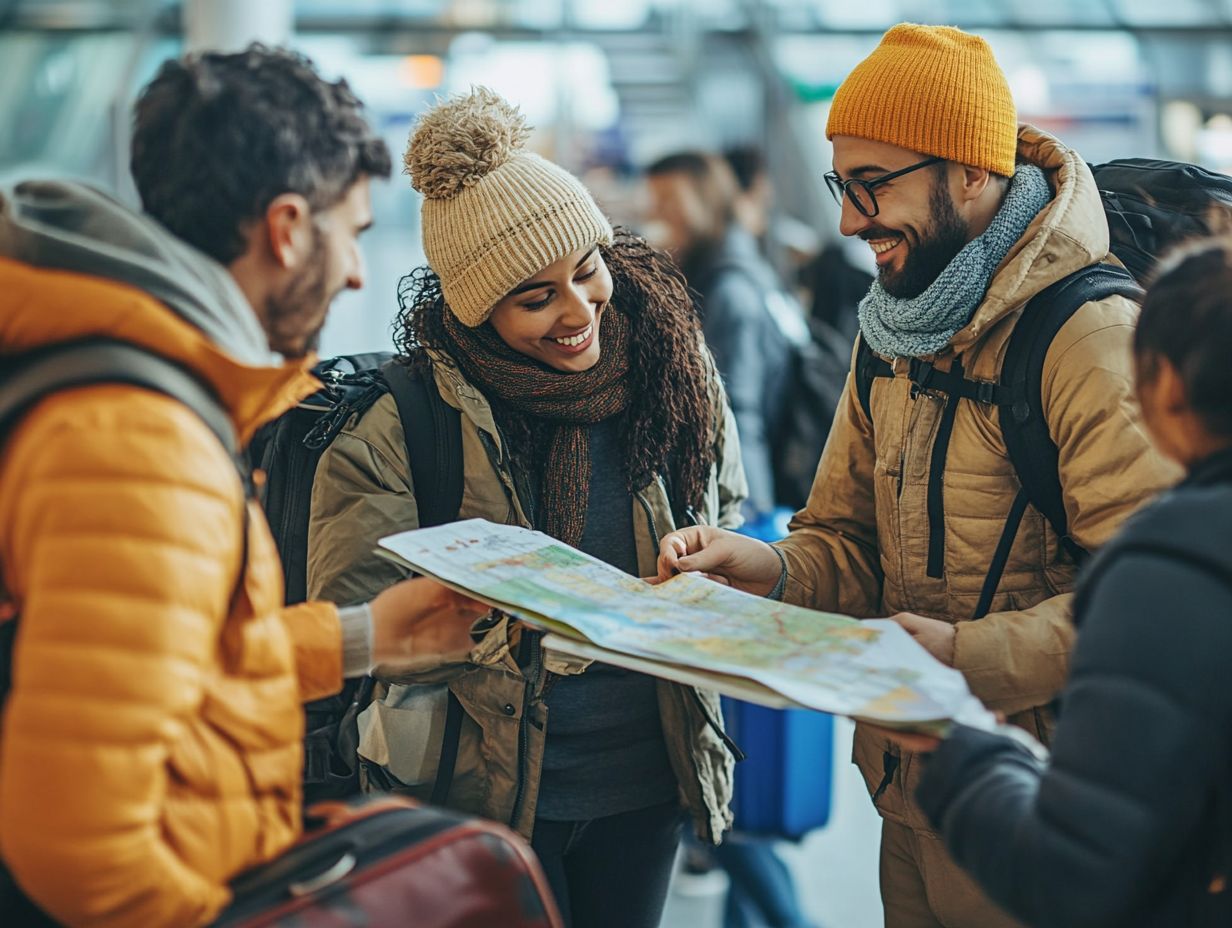
Handling emergencies is crucial for safe travel. Know the local emergency services. Keep emergency contacts handy and understand how to respond in crises.
Craft an emergency plan tailored to your destination. Familiarize yourself with local emergency numbers, such as medical services and police, as they often differ from those at home.
Maintain an easily accessible list of emergency contacts, including friends or family back home, to ensure quick communication when needed. Check local travel advisories immediately they often contain crucial safety updates about evacuations or natural hazards in the area.
By being proactive and well-informed, you can navigate crises with a greater sense of confidence and safety.
Returning Home Safely
Returning home safely marks the ultimate conclusion of your travel experience. Taking travel precautions is essential.
Ensure all your important documents are in order and remain vigilant about health risks that could surface post-journey.
Post-Trip Safety Checklist
A post-trip safety checklist helps ensure that your travel safety is thoroughly reviewed. Confirm that all important documents are in order and that your emergency contacts are updated for future travels.
Your checklist should include a review of travel documentation, such as passports and visas, ensuring they are valid and easily accessible for upcoming journeys.
Also, verify that your emergency contacts are accurately recorded. This gives you peace of mind knowing responsible individuals can be reached effortlessly if needed.
Evaluate the health precautions taken during the trip, such as vaccinations or medications, for ongoing safety. Reflecting on these experiences allows you to identify areas for improvement, enhancing your awareness and preparedness for future adventures.
Frequently Asked Questions
What Should I Know About Travel Safety?
Travel safety is crucial for anyone embarking on a trip. Here are key things to keep in mind, including what to know about travel warnings, for a safe journey:
What should I pack to ensure travel safety?
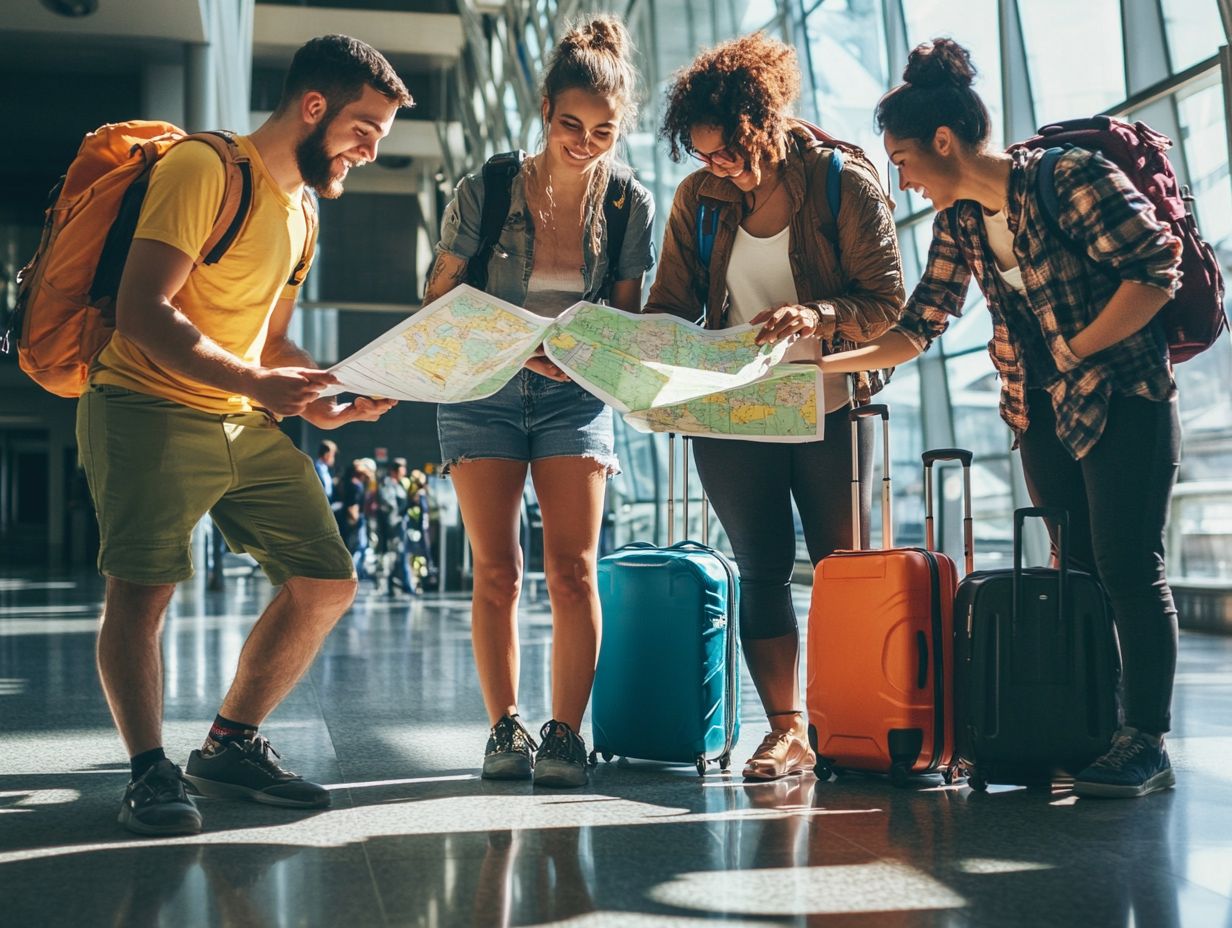
When traveling, pack items that keep you safe, including:
- A first aid kit
- Emergency contact information
- Necessary medications
- A copy of your passport and travel documents
What should I do before leaving for my trip?
Before leaving, research your destination and any potential safety concerns. Register with your country’s embassy or consulate, and have a plan for emergencies.
What should I do if I feel unsafe while traveling?
If you feel unsafe, trust your instincts and remove yourself from the situation. Seek help from hotel staff, local authorities, or trusted individuals. Always carry a means of communication, like a cell phone.
What should I know about local laws and customs?
Familiarize yourself with local laws and customs before traveling. This helps avoid accidentally offending or breaking the law. Always respect the culture and customs of the places you visit.
What should I do in case of a natural disaster while traveling?
In a natural disaster, stay informed and follow local authorities’ instructions. Have an emergency plan and be ready to evacuate if necessary. Travel insurance that covers emergencies and natural disasters is also important.


